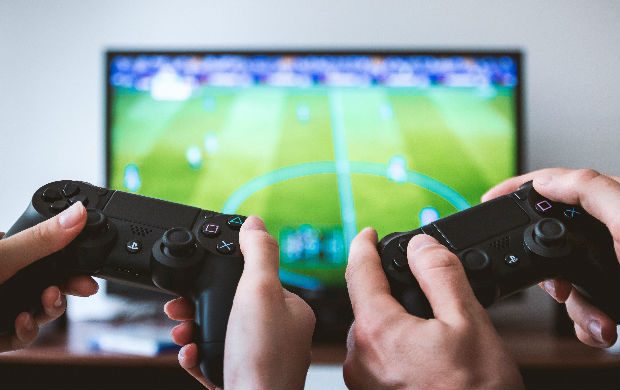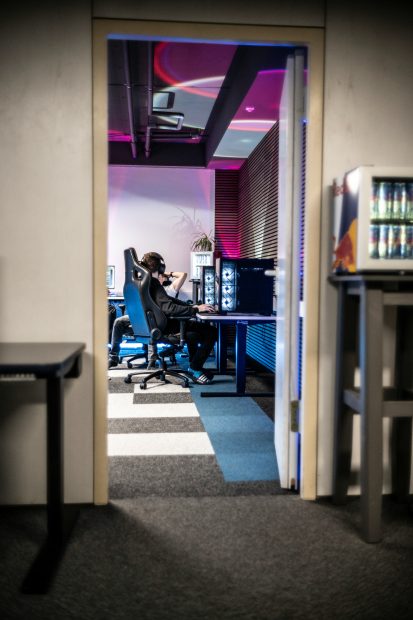Competitive gaming has also influenced contemporary digital culture, as video games have shifted from entertainment to a global high-performance business. The psychological preparation, discipline, and mental strength required to make an eSportsman are the same as those required in traditional sports. Players have spent hours in training, they have organised leagues, and they are under intense pressure when playing in tournaments that are watched by millions of people.
The eSports psychology also concentrates on affecting areas regarding the audience dynamics, teams, and the emerging industry of eSports betting, which heavily depends on the knowledge of performance trends, stress reactions, and winning results. All these factors come together to create the atmosphere in which mechanical proficiency is not as important as psychological awareness.
Cognitive Foundations of High-Level eSports
Professional players work in a cognitively challenging environment that will demand quick decision-making, steady strategic thinking, and high reaction times. Research studies on the psychology of eSports have shown that executive functions, including working memory, inhibition control, and cognitive flexibility, are important in sustaining high-level performance. In competitive games like CS2, League of Legends, or Dota 2, a lapse in attention may determine the result of a game, whether a win or a loss.
Another important factor is mental endurance. The tournaments involving the elite players should keep them sharp during the long tournaments, which can take several hours or even days. The ability to be focused and prevent intellectual exhaustion is directly proportional to the number of wins. Consequently, psychological optimisation has taken its place in the development of players.
Mental Preparation and Performance Consistency
Mental preparation is one of the most potent predictors of competitive success. Athletes of eSports use systematic psychological training to balance performance in a stressful situation. These include:
- Practice of visualisation before matches so as to rehearse mentally on strategies and scenarios.
- Relaxation measures like breathing in and out can lessen physiological stress.
- Self-affirmation to help overcome anxiety and strengthen confidence.
- Pre-game activities that assist in stabilising concentration and preparing more.
These practices are commonplace throughout the eSports organisations and are subject to the guidance of sports psychologists who usually understand the unique cognitive requirements of competitive gaming.
Motivation and Long-Term Competitive Drive
Motivation is one of the main factors that keeps eSports careers long-term. High performers are also usually intrinsically motivated, that is, they derive significant satisfaction in the mastering of the game, the enhancement of individual skill, and competitive excellence. Prize pools, team contracts, and recognition are categorised as extrinsic motivation, and they affect the commitment of players.
The existence of clear motivational structures aids the athletes to sustain continuity, particularly when they are undergoing stressful times. The coaches tend to focus on the goal-setting models, tracking their progress, and accountability systems based on teams to ensure that the players are on track and remain active.
Team Dynamics and Communication in Esports
International eSports competitions demand organised team performance, so interpersonal relationships can be a very important aspect of psychology. Successful cyber teams are based on:
- Clear communication.
- Role clarity.
- Trust among members.
- Effective leadership and shot-calling.
Communication breakdowns usually lead to misplays, a lack of consistency in the strategy, and low morale. Top-performing teams spend a lot on communication exercises and team feedback to enhance unity. Interventions on cooperation and conflict management have now become a norm in professional eSports and sports psychology.
Challenges: Addiction, Burnout, and Lifestyle Imbalance
Although competitive gaming has advantages, it poses serious psychological threats to the industry, too. The most widespread difficulties may become a stepping stone in one’s career and life.
Esports Addiction
Compulsive gaming may result in withdrawal by not attending everyday duties, social life isolation, and deteriorating health. Even though not every form of extreme gaming is pathological, dependency symptoms among potential players must be identified at an early stage and addressed by a professional.
Burnout
The causes of eSports burnout are due to excessive stress, excessive training, and lack of rest. They are fatigue, lack of motivation, irritability, and a drop in performance. Burnout is a problem that may be a sudden threat to a career unless it is handled well.
Lifestyle Strain
Competitive gaming has adverse effects on personal relationships, physical routines, and emotional balance due to the demanding schedules. Long practice sessions, travelling to tournaments often, and the struggle between isolation and social pressure usually become central to these challenges.
The Social, Educational, and Economic Impact of Esports Psychology
Competition is not the only aspect of the growth of eSports. They are currently becoming part of the academic curriculum of educational programs where teamwork, communication, and critical thinking are taught. Career opportunities are extended further in universities throughout the world, with scholarships being offered to eSports players.
The industry supports the fast development of technology, marketing, broadcasting, and event organisation economically and transforms the entertainment ecosystems. Training structures that are informed psychologically also educate the players in healthier and sustainable career development.









